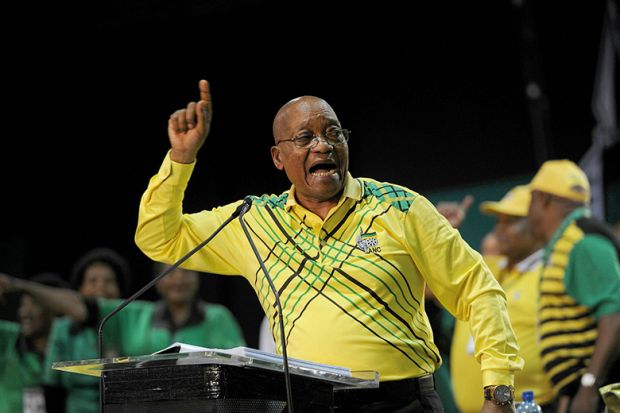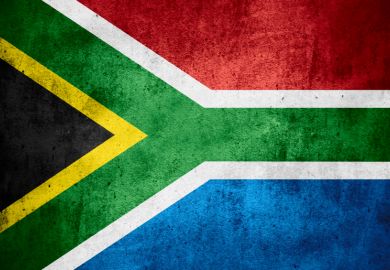“Populist” plans by South Africa’s outgoing president Jacob Zuma to abolish tuition fees for poorer students are highly unlikely to materialise, according to sector experts.
On the eve of the African National Congress’s annual conference, which saw Cyril Ramaphosa elected the ruling party’s new president, Mr Zuma announced that he would “extend fully subsidised free higher education to [those from] well over 90 per cent of South African households”.
Under the proposal, which would take effect for those starting university in February 2018, any student from a household with a combined annual income of less than R350,000 (£20,563) would be eligible for free tuition and financial support.
The move overrules the findings of the Heher Commission, a judge-led 18-month investigation into higher education funding, which recommended in November that South Africa move to a UK-style system of tuition fee loans – a proposal that sparked a wave of protests on campuses.
However, Martin Hall, emeritus professor in the University of Cape Town’s Graduate School of Business, said that there was widespread scepticism over the future of the policy, which had been met with “overwhelming silence” by the university community.
“This was widely seen as a populist move to bolster support for President Zuma’s favoured candidate [Nkosazana Dlamini-Zuma, his ex-wife] ahead of the highly contested race to find his successor, who will almost certainly become president in 2019,” said Professor Hall, a former vice-chancellor of the University of Salford.
“It is understandable that university leaders do not want to be drawn into this debate in this context.”
Many within Mr Zuma’s own party, including his own minister of finance, have expressed major doubts over the affordability of this plan, added Professor Hall, who said that the ANC’s newly elected “top six” were divided over the policy.
“It is not at all clear how it will be paid for or how it will be implemented,” said Professor Hall, who is concerned that a mooted rise in value-added tax to pay for free fees would hit South Africa’s poorest taxpayers hardest.
Professor Hall said, however, that the policy itself was commendable because tuition fees in South Africa, which must be paid up front, are high compared with average wages and remained a barrier to entry for many middle-income families.
“In the appropriate political context, it is absolutely the right decision to make,” he said.
Belinda Bozzoli, the former deputy vice-chancellor (research) at the University of the Witwatersrand and the opposition Democratic Alliance’s shadow higher education minister, agreed that the policy’s aim was laudable. Mr Zuma’s pledge to raise spending on higher education from 0.68 per cent of gross domestic product to 1 per cent within five years was a good idea, she explained.
However, that promise – and the “completely uncosted and unfunded” free tuition fees pledge – was clearly unaffordable, she said.
“This will be hugely expensive – about R12.4 billion for the coming year, but this type of money isn’t just floating around. Instead we have an R80 billion deficit,” Professor Bozzoli explained.
“As President Zuma is now a lame duck, I am not sure this will fly,” she added, calling the policy a “populist ploy for Zuma to go out on a note of radical economic transformation”.
Register to continue
Why register?
- Registration is free and only takes a moment
- Once registered, you can read 3 articles a month
- Sign up for our newsletter
Subscribe
Or subscribe for unlimited access to:
- Unlimited access to news, views, insights & reviews
- Digital editions
- Digital access to THE’s university and college rankings analysis
Already registered or a current subscriber?








